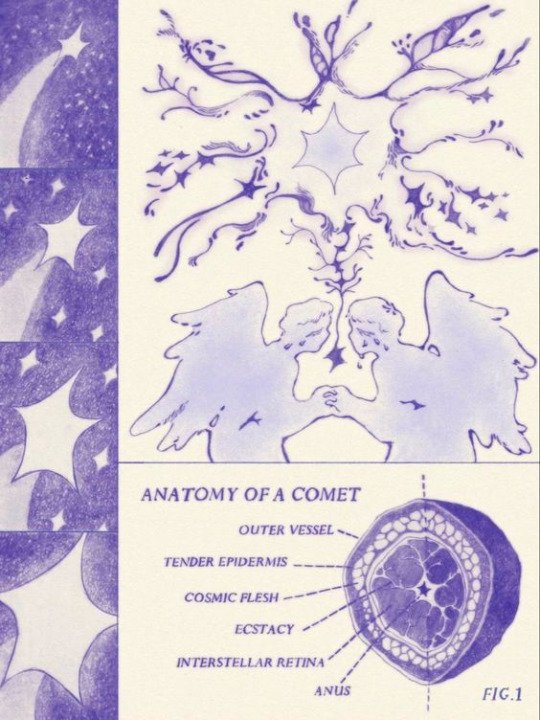Don't wanna be here? Send us removal request.
Text
Chapter 1 Fieldwork
Twix Chocolate bars are one of my childhood favorites. So since I had one in my bag I decided to find out the history of them. The sourcing of the Main ingredient of milk chocolate is from the company Mars Inc. Their main source of cocoa comes from West Africa, Southeast Asia, and South America. With a little bit of research I’ve found out that child labor in these farms is very common; children as young as 9 are sent to work at these farms for as long as 12 hours a day. Child trafficking also plays a huge role in these farms, some children are bought for as little as $20 USD to work. And they are only getting paid as little as 42 a day. However recently Mars Inc. has taken steps to solve this problem. They are implementing “child labor monitoring and remediation systems (CLMRS)”, to reduce the prevalence and risks of child labor by 2025. They are trying to make sure at risk families are covered by giving them more access to education and protection from forced labor. They call this movement “Cocoa for Generations.” Hopefully they are sticking true to their claims and really striving to eliminate child labor. Anyways the Farmers begin by harvesting cocoa beans from cacao plant pods. They're then fermented in piles and wrapped with banana leaves. The cocoa beans are subsequently dried and packaged for domestic transit. Packaged cocoa beans are transported to cleaning warehouses or processing plants. The chocolate bars are manufactured in Cleveland Tennessee, where they are then sold to buyers. In my life this candy bar is just a sweet treat to enjoy, while those children who will probably never get a chance to eat it, it represents the hard work that they have been forced to do. Capitalism is absolutely horrible, it’s almost like there is no ethical consumption no matter what it is; somebody is always suffering.

6 notes
·
View notes
Text
CH.13 FieldWork
The immigration story I chose was my own Grandmother. She was born in 1947 in Bluefields, Nicaragua. There was no electricity or running water so they lived very simple lives. She would even have to take a boat to school. She spent most of her days working around the house and playing with her 10 siblings. Unfortunately her asthma was severely bad and she was hospitalized many times throughout childhood. At the time in Nicaragua education was not free after elementary school; but luckily for my grandmother her family's participation in the church allowed her and her sister to receive scholarships for school. After graduating she moved to the country's capital Managua for nursing school and became a nurse. In 1972 she gave birth to My mother and moved to Panama when she was 9 months old. In Panama she was doing very well as a nurse and had a family to support her. She remained there until 1977 until her brother who had previously immigrated to the states convinced her to come up. She found out that she could make way more money being a nurse in America; after getting into an abusive relationship she made the executive decision to migrate over and leave her daughter in Panama with her sister until she was fully settled. She came to the U.S very legally, her Brother sent for her and she was also a nurse so she was able to obtain a work visa. Leaving her daughter was a very hard decision to make but at the time it was her only option for a better life. When she first arrived here it was extremely difficult, not only was she black in a very racist New Orleans, she also was an immigrant. Her nursing qualifications from Central America didn't mean much, so she started out only making $2.16 an hour. She had to work extremely hard. While working as a Nurse she took care of this Catholic Nun with great proficiency, after her treatment the nun told her “You’ve treated me better than anyone I've ever met so anything you could ever need please reach out to me.” At the time she lived with her brother and his wife; when she was ready to bring her daughter to the states his wife made it clear she was not allowed because she “wasn't a babysitter”. Because of this setback my Grandmother had to work even harder to gain her own place for her and her child. After taking the NCLEX exam 3 times she finally passed and her wage went up to $10 an hour. She was then able to get her own apartment and send for my mother to come up to the states. My Grandmother then contacted the nun and asked her to enroll her daughter into the catholic school that she worked at. This allowed her to obtain a school visa, and that's how my mother was able to come to the United states. This happened in 1980 so after 4 long years my Grandmother and Mother were both finally in the states. In 1985 she purchased her first home in New Orleans, this was a very big stepping stone for her. She describes this moment as “all her hard work finally paying off”. She then opened her own home health agency from 1991-1999, She had accomplished so much here, it really shows that hard work and sacrifice do eventually pay off. Sadly in 2005 Hurricane Katrina wiped away her home and she then moved in with my Mom who was living in New York at the time. My Grandma has sadly passed away. And although she is no longer with us, she inspires me to keep on striving and to never give up no matter the odds.
0 notes
Text
CH.6 FieldWork

American nationalism is something I could never relate to. My ethnic background has always been a prominent part of my identity. My mother is from Bluefields NIcaragua. And my father is from Nigeria. I group up with Soca and Salsa Music, and Spanish being spoken 24/7. Lots of rice and a plethora of dishes just emphasized into my mind that America is a place we only came to for opportunity. How long has your family lived in this country? My Grandma came to this country in 1975 and has resided here since. She then provided for my extended family to come, and they have all made their way here little by little. Where did they come from? They came from Bluefields, Nicaragua. Which is the land they were indigenous to. They were a part of the moskito and garifuna tribes. Bluefields is directly on the coast of Nicaragua and is completely surrounded by water. Although very poor it was rich in culture, fruit and just life all around. Due to better job opportunities My grandmother and most of her siblings moved to Panama City, Panama. Which is where she moved to the states from. Has your family embraced American Nationalism? Yes and no. Since everyone in my family my age and younger is all first generation, we will be the first to really incorporate more American culture and values into our lives. Since the older generation was not born and raised here, they are the main ones incorporating our culture into our everyday life. We are culturally very different from traditional American families, and that's something that I don't think will ever change. If some of your family have migrated from other parts of the world, how do they integrate their American identity with their ethnic identity? The most American integration that we do is 4th of July cookouts and thanksgiving, but beyond that we are still very much in touch with our ethnic identity. The most important part of our culture is simply just remaining connected to our family members. Having parties and uniting as one is all we truly need to do. Family being number 1 is an extremely prominent value. In Nicaragua our entire family lived in close proximity to each other. But in America everyone has been able to go their own separate ways. Therefore we have to make even more of an effort to spend time with each other and share traditions.


0 notes
Text
Ch. 10 Fieldwork
https://news.ucsc.edu/2014/05/womens-land-ownership.html
This article is a great representation of Weber’s theory. His theory is “Weber argued that owning property, such as factories or equipment, is only part of what determines a person's social class. Social class for Weber included power and prestige, in addition to property or wealth.” This article talks about the inequality of property ownership compared to domestic violence. Due to Men being the only ones allowed to own property it only elevated the sense of power that they have. But now these women own property and along with it came more power. This theory still applies to this day as owning property is becoming increasingly harder due to inflation.
https://www.healthaffairs.org/do/10.1377/hpb20210428.863621/full/
Marx’s theory of social class views people as being divided into social classes depending on how they relate to the factors of production. This article is a great example of that because the lower income workers are at a higher risk of contacting covid-19 and yet cant afford to miss work. These are our essential workers. The people who work in grocery stores, restaurants, and everyday places that society depends on to function. The Bourgeoisie is able to isolate themselves while the working poor who is statistically more at risk is still forced to work.
https://www.washingtonpost.com/world/2021/11/30/barbados-republic-rihanna-national-hero/
When people seek power and position in society through politics or other methods, cultural capital, according to Bourdieu, may play a role. And cultural capital along with economic capital contribute to the inequality we see in the world. This article is purely just an example of how powerful cultural capital can be. Rihanna is a superstar who has broken records with music, makeup, and fashion. And now her home country has awarded her as a national hero. Her prevalence in American culture has been so powerful and it’s a perfect example of Bourdieu’s theory.
0 notes









